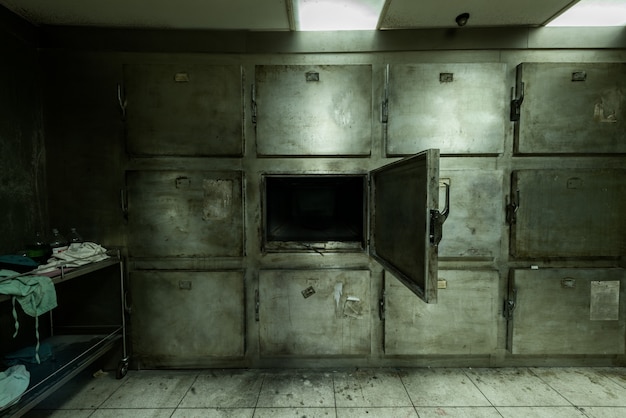Stories that are collected from the depths of the unknown or spawned from the deep recesses of my mind...
Friday, December 27, 2019
The Mortician's Daughter
Many of the applicants came into our program with a romanticized idea of police work. Many envisioned an elegant battle of wits against wine-swilling criminal masterminds. Many others were former high school bullies who were mostly interested in busting in some heads.
They didn’t take my work as a coroner too seriously. For them, a corpse was a clue, to be sliced open and tossed aside.
But Bethany was different. She saw the cadavers as the people they had been, worthy of respect. She would whisper to them while she worked, telling them the latest news they’d missed out on, or how grateful she was to learn from them. Some of the students found it a little off-putting, but to me, it was endearing. And she always knew what she was doing – which tools to use, how to extract the organs properly, how to sew the lips shut, and so on.
It came as no surprise then, to learn that she had been a mortician’s daughter. She worked with her dad in some quaint rural village, prettying up the bodies for funerals. He had been something of a public servant as well – being the only mortician for miles around, she told me, he would often offer his services for free to people who had died without family, and would stage a public viewing regardless of whether anyone came to visit the deceased.
He sounded like a kind-hearted man, and I longed to meet him.
I wondered if he shared his daughter’s sense of gallows humour – an important tool for people who thrive in circumstances that would otherwise engender despair.
Today, we were discussing the process of decomposition, and the weird things a body may do post mortem.
We’d already discussed coffin births and angel lust (look them up if you dare). So I decided to end on a lighter note.
“Corpses might bloat up with gas, and that gas needs to escape somehow,” I said, pausing for dramatic effect. “Corpses fart, in other words.”
The students laughed, dispelling some of the tension in the room.
Bethany raised her hand. “The gases sometimes escape the other way too. Up, past the vocal chords. So sometimes it sounds like they’re moaning.”
It was true that corpses sometimes moaned, and it was always pants-shittingly unexpected.
But then Bethany continued. “Sometimes,” she said, “they even sound like they’re screaming.”
The other students cast each other sideways glances.
Screaming? Impossible. The vocal chords tighten when a person screams, which requires an electrical impulse from the brain. And corpses are braindead.
“Bethany, please, these kids are dumb-asses, and they don’t know you’re joking.”
Everyone laughed.
“Who’s joking?” she asked, deadpan.
I smiled, trying to think of a witty rejoinder.
But then she added, without a hint of humour, “It happened all the time when I worked in my dad’s basement.”
---
Credits
Subscribe to:
Post Comments (Atom)
I Talked to God. I Never Want to Speak to Him Again
About a year ago, I tried to kill myself six times. I lost my girlfriend, Jules, in a car accident my senior year of high school. I was...

-
My grandmother told me when she was in high school an old math teacher in his 60’s named Harold Davidson was teaching math and one of his ...
-
If God had a refrigerator, your picture would be on it. If He had a wallet, your photo would be in it. He sends you flowers every spring. He...
-
Once upon a time there was an old miller who had two children who were twins. The boy-twin was named Hans, and he was very greedy. The gi...



No comments:
Post a Comment